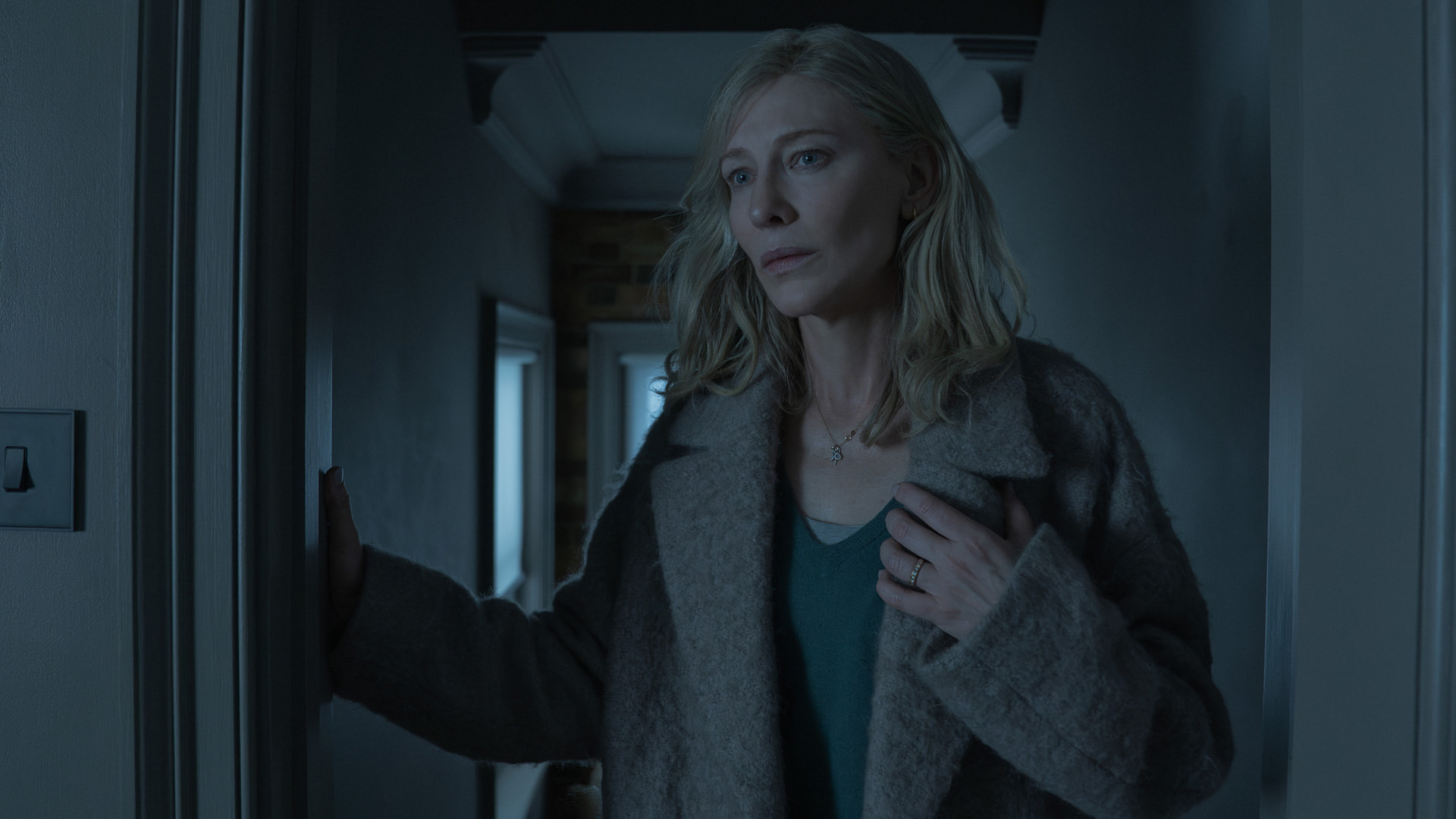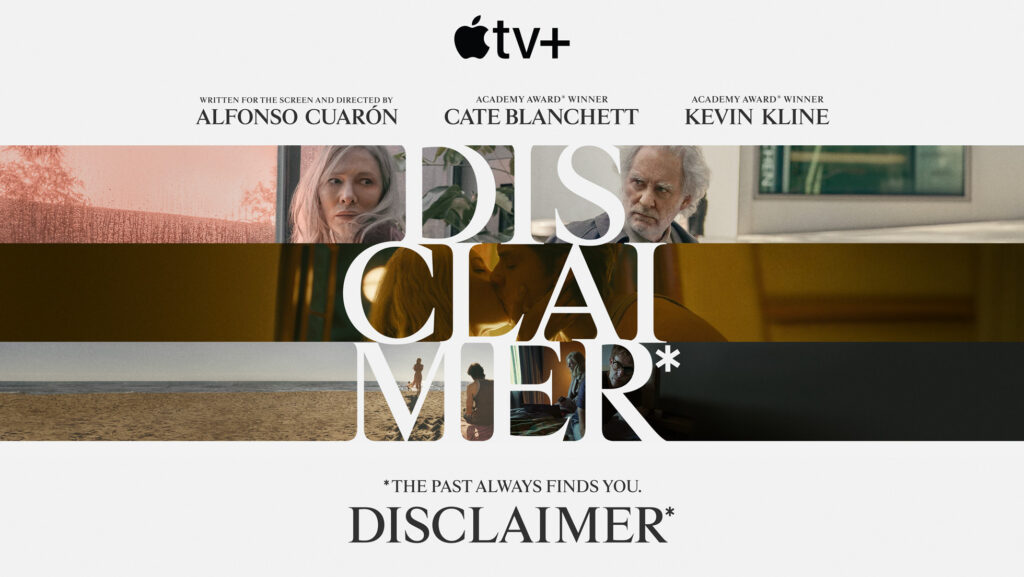Physical Address
304 North Cardinal St.
Dorchester Center, MA 02124


Since signing up for the seven-day Apple TV+ free trial, I’ve explored a few of its offerings, and Disclaimer caught my attention as the platform’s current number-one show (as of November 9th, 2024). Though I’m not necessarily drawn to psychological thrillers as a top genre, Disclaimer seemed worth a look based on its buzz and impressive creative lineup. However, before diving in, I like to get a sense of what I’m about to watch by researching the background, cast, and creators. This habit gives me some context about a show’s potential strengths and what kind of storytelling approach it might take. Here’s what I discovered before I hit “play.”
Disclaimer premiered on October 11, 2024, and is based on Renée Knight’s 2015 novel. It’s a psychological thriller, and Apple TV+ managed to bring in some serious talent for this seven-episode limited series. The show is both written and directed by Alfonso Cuarón, a five-time Academy Award winner best known for his work on films like Gravity and Roma.
This series also marks his debut in serialized TV, which had me curious but not entirely sold—I’ve seen Gravity, and I enjoyed its intensity and unique approach, but I was less captivated by Children of Men, which I found slow. Knowing Cuarón’s signature style leans toward a visually rich, sometimes minimalist storytelling approach, I had mixed feelings about how that would translate to a longer format like a seven-part series.
The cast lineup is equally impressive, featuring actors who are highly respected in their fields. Cate Blanchett, an actress I admire for her undeniable talent (even if her roles don’t always resonate with me personally), leads the show as Catherine Ravenscroft. Kevin Kline, another seasoned actor, plays opposite her, along with Sacha Baron Cohen and Lesley Manville.
Sacha Baron Cohen, known for comedic roles like Borat, seemed like an interesting addition to a dramatic thriller like Disclaimer. I was curious to see how he would tackle a role with zero comedic elements, which could potentially reveal another dimension to his acting abilities. Blanchett also served as an executive producer, alongside Cuarón, which shows a high level of involvement and commitment from the cast.
So, with a prestigious creative team and a buzz-worthy cast, Disclaimer felt primed for quality. Yet, I couldn’t help but feel cautious. Apple TV+ has positioned itself as a platform for sophisticated, often slow-burn storytelling, a style that doesn’t always hold mass appeal. This strategy feels evident in Disclaimer, which, from the outset, seemed like it would be rich in intrigue, atmospheric settings, and nuanced performances—but also, potentially, a bit too “snooty” and slow for my taste.
The show kicks off with an unexpected and somewhat jarring scene: two young passengers on a train in an intimate moment. A train worker interrupts them to ask for a ticket, and the guy casually hands it over. It’s a seemingly trivial moment, and at first, I wasn’t sure what to make of it. My initial thought was that it felt a bit disconnected from the usual thriller setup, which left me wondering if this was merely an introduction to the characters or if there was some deeper, symbolic meaning to the scene. Right off the bat, it had me intrigued but slightly puzzled, wondering if the significance would reveal itself later.
From there, the scene shifts to a more formal setting—a lecture at an elegant dinner where Catherine Ravenscroft is introduced to the audience. This transition felt sudden, but it clearly signaled that we were moving into the main narrative and meeting the primary characters.
Blanchett’s character, Catherine, immediately comes across as composed, intelligent, and high-status, a sharp contrast to the young couple on the train. The dinner setting hints at an exclusive, possibly elitist world filled with people who are well-connected and highly respected in their circles. It starts setting up the environment for the show: sophisticated, privileged, and maybe a bit detached from the everyday world.
The Introduction of Kevin Kline’s character, Steven Brigstock, adds another layer. We find him in a classroom, looking rather grumpy and indifferent. He’s a teacher at what appears to be a prestigious school, and he’s been called in by the principal because a parent has complained about something he said to a student. Steven seems unfazed by the complaint, almost dismissive, as though he couldn’t care less about the school’s or parents’ opinions.
This attitude paints him as a complex character with a jaded, perhaps even resentful, outlook on his job and, possibly, life in general. At this point, it’s clear that he and Catherine occupy very different worlds, and I was curious about how their paths would eventually intersect.
The episode returns to the young couple from the train, and they’re as obnoxious as before, fooling around and generally acting immature. Personally, these scenes were frustrating to watch. Their antics seemed almost over-the-top, and I found myself questioning why the show devoted so much screen time to them. Were they simply there to contrast the more “sophisticated” characters, or was there more to them?
The constant return to these two felt repetitive, almost as if the show was trying too hard to establish their personalities. It was an early warning that Disclaimer might be indulging in scenes that didn’t directly serve the plot but rather padded the runtime with atmosphere and character quirks.
Finally, we return to Catherine and her husband, Robert (played by Sacha Baron Cohen), at home. They live in a stunningly upscale house, fitting right into the “high society” theme that the show seems to be building. What stood out here was Cohen’s performance—he’s completely serious, without a hint of his trademark comedic edge. Seeing him take on a dramatic role in a tense, psychological thriller was refreshing and somewhat surreal.
However, as intriguing as these early character moments were, the pacing felt deliberate and slow, as if the show was inching forward with each scene rather than diving straight into the mystery. This gradual pacing set a clear tone: Disclaimer was going to be a slow-burn thriller, more focused on atmosphere and character study than immediate plot development.
Overall, the initial scenes were more of a setup than a hook. They established the mood and gave a glimpse of the characters’ personalities and backgrounds, but for a first episode, the lack of urgency was noticeable. The slow, almost languid pacing didn’t offer immediate thrills or revelations, making it clear that this show was aiming for a more thoughtful, sophisticated approach.
For viewers seeking instant intrigue, this style might feel frustratingly slow. For those who enjoy layered storytelling and nuanced characters, however, the setup might feel promising. For me, I was left with mixed feelings—appreciating the high-quality production but waiting for a compelling reason to be fully invested.

Just when I was beginning to feel that Disclaimer might be dragging its heels, the show throws a curveball. Catherine receives a mysterious package at her home—a book titled The Perfect Stranger by E.J. Preston. This moment marks the first real spark of intrigue, hinting that Catherine’s life is about to unravel. The book cover immediately feels ominous, especially when Catherine discovers a personal dedication inside: “To my son Jonathan.” From that point on, the air of mystery intensifies as the show shifts from a slow introduction to a psychological thriller, with Catherine at the center.
The tension ramps up further when Catherine opens to the book’s disclaimer page. Instead of the usual “any resemblance to persons living or dead is purely coincidental,” this disclaimer chillingly states that “any resemblance to persons living or dead is not a coincidence.” This subtle but powerful deviation from the norm signals that the book is intended to be a direct, personal attack on Catherine.
It’s a rare instance where Disclaimer fully embraces the thriller genre, using the scene’s ominous sound design—echoing, rumbling noises that heighten the suspense—to make this moment unsettlingly memorable. At this point, I found myself hooked. This reveal breathes life into the story, finally aligning with the psychological tension I’d expected. The book seems to hold dark secrets about Catherine’s past, and the show frames it as a ticking time bomb, hinting that everything Catherine has built may come crashing down.
The inclusion of this fictional book as a plot device adds a layer of metafiction that makes the narrative even more unsettling; Catherine is reading a version of her life told by someone else, with implications she may not want to face. It introduces questions about identity, memory, and culpability, suggesting that Catherine may have secrets she hasn’t confronted—or hasn’t told anyone about.
Meanwhile, we revisit Steven, who’s dealing with his own mysterious discoveries. He finds an old purse hidden under a wardrobe in his home, along with a set of photos that includes images of the young couple we saw earlier on the train. Among these pictures is an image of a naked woman, which only deepens the mystery.
It’s suggested that Steven’s wife, who has passed away, might be connected to these characters and secrets in ways that haven’t been fully explained. Steven’s reaction hints at grief and unresolved tension, but it’s unclear whether he’s mourning his wife, struggling with regret, or both. This aspect of the story subtly suggests that Steven may have been in the dark about some parts of his wife’s life.
Throughout these scenes, the cinematography and sound design excel in creating an atmosphere of suspense and tension. The visuals are crisp, with every scene capturing a sense of unease that aligns with Catherine’s journey. The show takes us to Florence, where the young couple continues to wander about, seemingly oblivious to the darker undercurrents unfolding around them. Their playful, careless energy feels almost mocking against the heavier tone of Catherine and Steven’s lives. It’s as if they’re ghosts of the past, representing a carefree innocence that has long since vanished for the main characters.
As Catherine reads deeper into The Perfect Stranger, the story becomes more intense, pushing her to confront the possibility that this book is a form of revenge against her. The narrative leaves breadcrumbs about a past relationship, buried secrets, and the potential impact of choices she made long ago.
At one point, Catherine’s reaction to reading a particularly troubling passage sends her rushing to the bathroom, where she vomits. It’s an intense, visceral moment, and Blanchett’s performance here is particularly strong, showing the physical toll that fear and guilt are taking on her. It’s one of the first moments where we see her composed exterior start to crack.
This is where Disclaimer starts to show its true potential, using slow-burn storytelling to pull us deeper into a web of mystery. Catherine’s reaction to the book raises countless questions: What did she do? Who is seeking revenge on her? And what secrets could be so damning that she’s willing to burn the book to destroy the evidence? These revelations suggest a history that’s more complex and possibly darker than we’d initially expected, turning Disclaimer into a psychological exploration of guilt and consequence.
The setup Is skillfully done, with each reveal connecting Catherine and Steven through shared themes of regret, secrecy, and haunting memories. This section of the episode does a great job of elevating the stakes and giving viewers a reason to continue watching. It’s here that Disclaimer finally finds its footing as a thriller, teasing just enough mystery to keep us invested while hinting that there’s much more to be uncovered in the episodes ahead.

By the end of the first episode, it’s clear that Disclaimer is aiming for a unique blend of slow-burn suspense and art-house aesthetics. This isn’t a show that jumps straight into high-stakes drama; instead, it gradually immerses the viewer in a meticulously crafted world of privilege, hidden pasts, and simmering tension.
The episode introduces some intriguing mysteries, especially with the arrival of the ominous book, but it doesn’t rush to explain its secrets. For viewers who enjoy peeling back layers and diving into complex character psychology, this slow pace might be engaging. However, for those who prefer a fast-paced thriller with immediate payoffs, Disclaimer may feel overly slow or even tedious.
While the show boasts high production quality, polished cinematography, and subtle sound design, the tone leans heavily into what I would describe as “snooty.” The characters inhabit a world that feels both refined and emotionally distant, populated by people who are wealthy, well-educated, and somewhat aloof.
Catherine, Steven, and the supporting characters give off an air of privilege and detachment, which can make them feel unapproachable. At the end of the day, the plot boils down to “snooty people drama,” where Steven’s late wife has exposed aspects of Catherine’s past through her book, setting up a clash of secrets and grudges within a high-society setting.
For viewers seeking thrillers that explore more relatable issues or higher-stakes tension, Disclaimer may feel like “snooty world problems” and might not fully captivate. It’s a show about privileged lives with deep-seated conflicts that may not resonate with everyone. However, for a more sophisticated audience that appreciates atmospheric, character-driven intrigue, this drama will likely appeal. For me, though, while I can recognize its quality, the intrigue doesn’t hit home, and it’s not one I’ll be continuing.

Curious about what our monthly digest offers? Head over to our newsletter page to learn more, or simply sign up below to get The Stream Snob Monthly Digest with the best streaming picks, exclusive insights, and the latest trends across all major platforms, delivered straight to your inbox!
Subscribe to our newsletter!